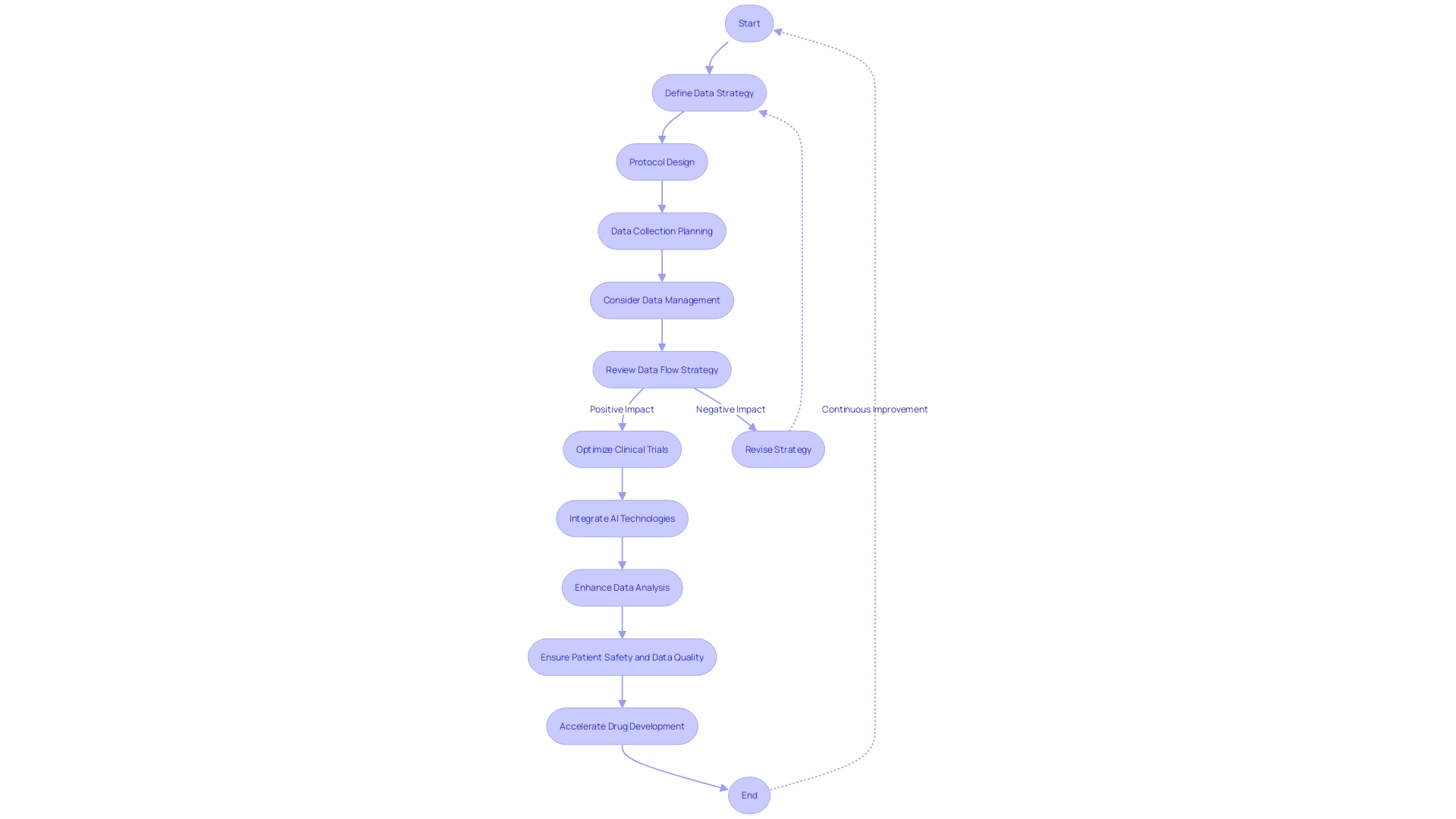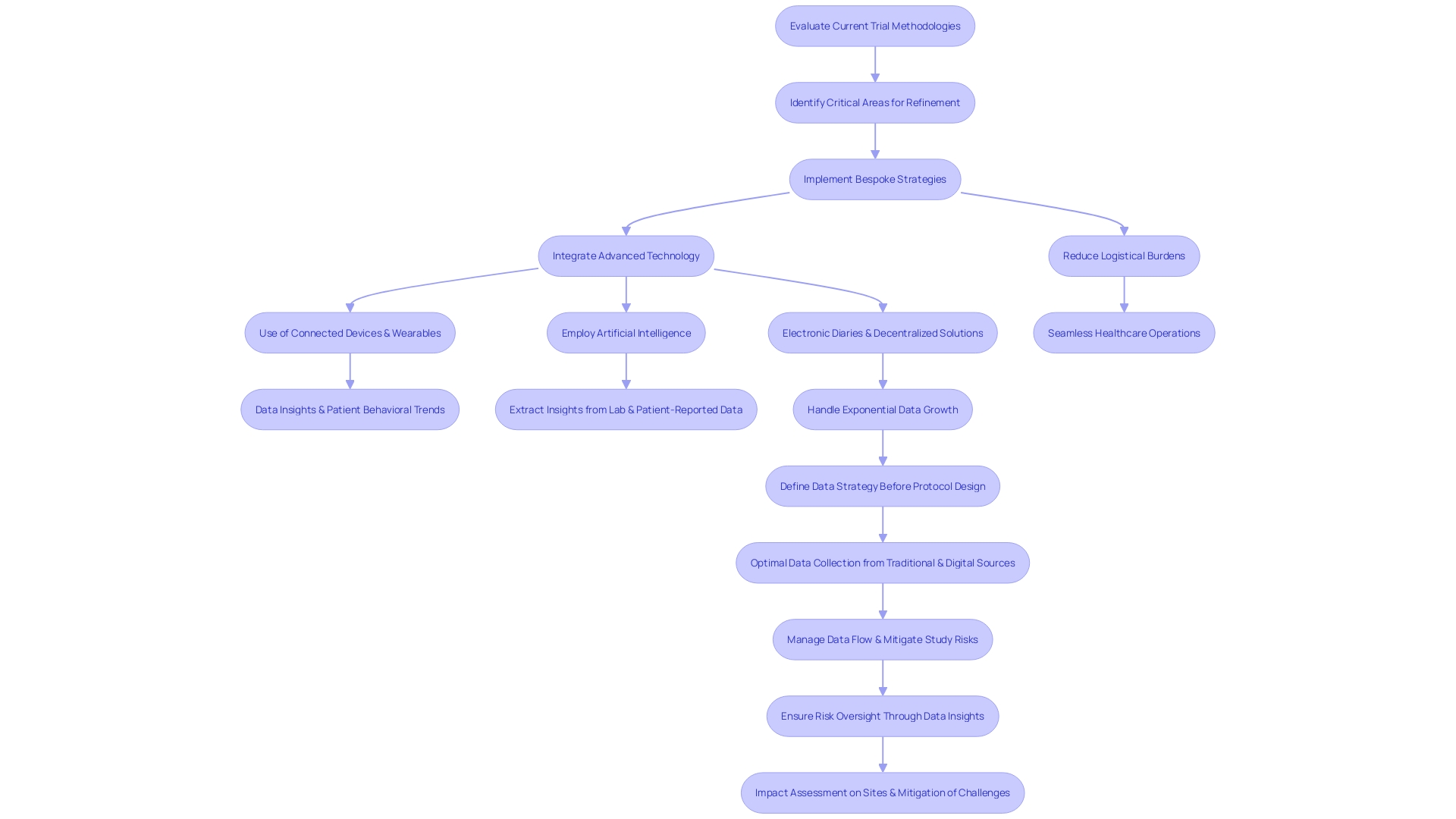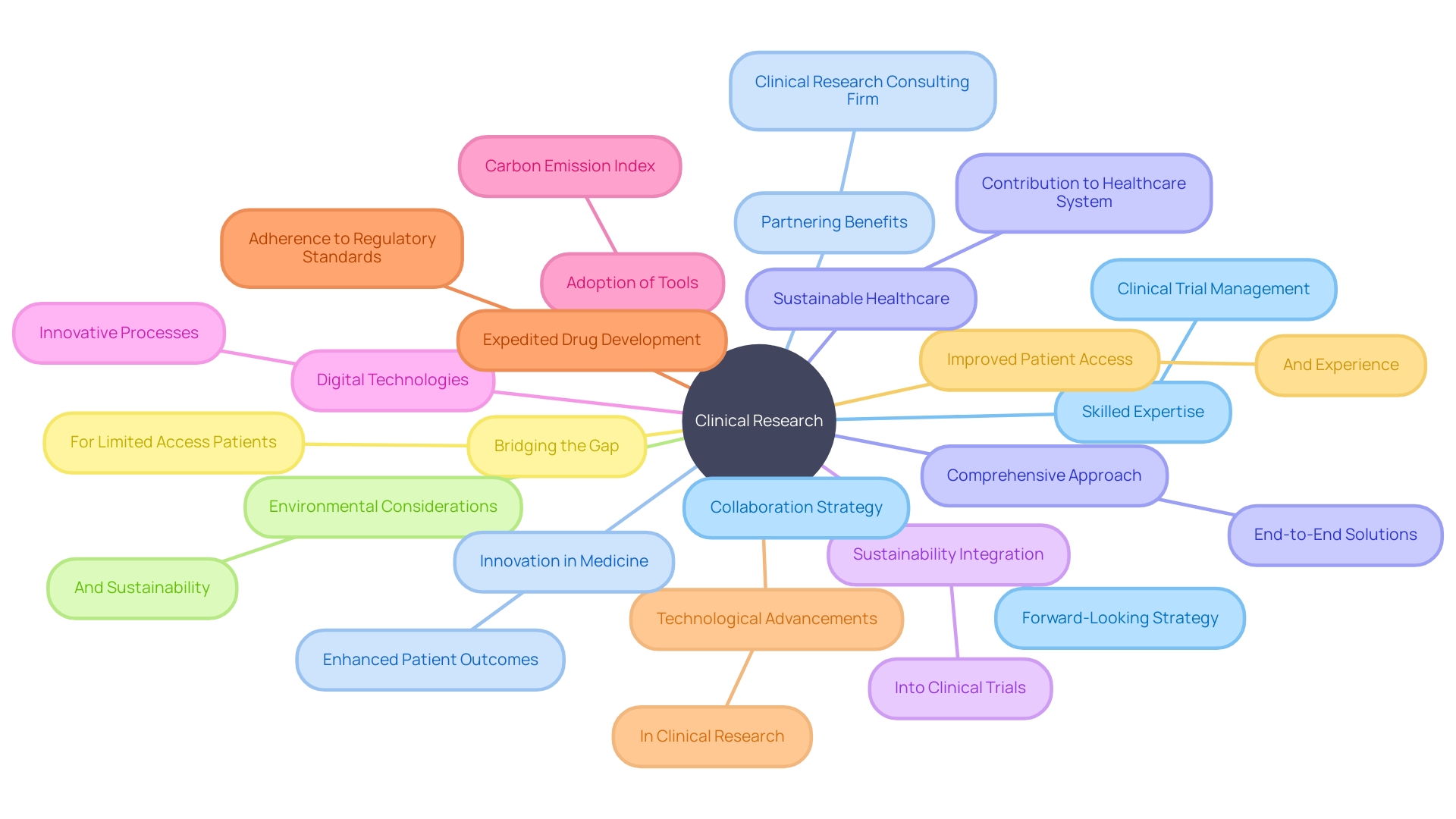Introduction
Clinical research consulting firms play a vital role in the advancement of medical research and the development of innovative treatments. These firms serve as strategic partners, providing expertise and insights that drive the success of clinical trials. By leveraging their profound understanding of the medical research landscape, they assist pharmaceutical companies, healthcare organizations, and research institutions in making informed decisions throughout the entire trial process.
From early decision-making to optimizing trial protocols, these consulting firms ensure the integrity and efficacy of clinical trials. This article explores the challenges faced in clinical research, the solutions provided by consulting firms, and the future of the industry. By partnering with these firms, organizations can navigate the complexities of clinical research and accelerate the development of life-saving treatments.
Subtitle: Leveraging Expertise to Drive Innovation
Clinical research consulting firms are integral to the progression of medical research, functioning as the architects of clinical trials. Their profound insights into the medical research landscape enable pharmaceutical companies, healthcare organizations, and research institutions to make informed decisions, particularly during the critical early phases of clinical studies. A poignant example is Treehill Partners' realization, after advising on numerous trials, that better outcomes could be achieved by investing more time and effort into early decision-making.
In-depth analysis of 1,200 data points revealed that approximately 80% of decisions made years in advance of study completion affect subsequent outcomes significantly. This analogy of 'links in a chain' emphasizes the importance of optimizing each decision for its long-term impact on the study.
CMIC Group, a pioneer in the Japanese CRO industry, exemplifies the expansive role these organizations play, offering end-to-end solutions that extend beyond traditional trial management. They serve as a comprehensive partner to various stakeholders in drug development, providing services that span from contract development and manufacturing to healthcare solutions and market entry strategies.
The efforts of clinical research consulting firms are also reflected in the advancements made in specific medical fields. For instance, Indiana University researchers have utilized neuroimaging and network modeling tools to explore Alzheimer's disease, illustrating the multidisciplinary approach required in modern clinical research. The complexities of this field are further highlighted by the challenges faced by patients, such as those with rare diseases, when participating in international trials.
These scenarios underscore the necessity for meticulous planning and support in managing cross-border logistics and language barriers.
Moreover, the increasing complexity of medical device regulations demands thorough clinical evaluations, prompting manufacturers to seek expertise from specialized consultants to ensure compliance and to craft detailed Clinical Evaluation Reports (CERs). Such evaluations are essential in demonstrating a device's safety and efficacy, which are mandatory for market approval in regulatory regions like the European Union.
In essence, clinical research consulting firms are the strategic partners that ensure the integrity and efficacy of clinical trials, from conceptualization through to execution, playing a pivotal role in the advancement of medical science and patient care.
Client Profile
A leading drug developer in the oncology space, with a rich pipeline of drug candidates, realized the need to refine its clinical trial strategies. The company's recognition of this necessity emerged from insights that suggest a vast majority of clinical trial decisions, approximately 80%, could be significantly improved with more thorough preparation and strategic planning. This understanding is based on the analysis of 1,200 data points that highlight the importance of spending additional time and effort in 'bulletproofing' decisions long before trial results are available.
The analogy of strengthening each link in a chain to optimize for relevant timeframes underscores the potential for each decision to exponentially influence subsequent outcomes in the drug development process.
In the realm of clinical trials, the primary focus has often been on obtaining regulatory approval, with less emphasis on long-term commercial viability and patient access. However, a shift is occurring towards a more holistic approach that considers not only approval but also the future commercial success and patient reach of a drug. This perspective is particularly crucial in a capital-constrained environment, where the onus is on the trial designers to not only blame the molecule for failures but also scrutinize their methods to avoid failing potential treatments.
Furthermore, the integration of advanced artificial intelligence (AI) technologies is poised to revolutionize the life sciences ecosystem by accelerating drug development timelines and enhancing the precision of treatments. Companies like Insmed are at the forefront of this transformation, developing therapies for serious and rare diseases, with the support of partners like Google Cloud. The adoption of AI and the focus on data-driven insights, leveraging everything from connected devices to patient-reported outcomes, are enabling smarter decisions in drug development.
By adopting a robust data strategy before protocol design, clinical researchers can manage an ever-growing array of traditional and digital data sources to extract deeper insights and improve patient outcomes.

Challenges and Objectives
Clinical trial companies face the complex challenge of innovating processes while maintaining stringent regulatory compliance and optimizing trial protocols. The case of a patient from rural Pennsylvania illustrates the logistical hurdles when trials are held abroad, such as obtaining visas and coordinating travel, which introduces significant complexities to patient recruitment. Furthermore, the environmental footprint of clinical trials is under scrutiny, as the healthcare sector is responsible for approximately 5% of global GHG emissions.
To address this, pioneering companies are utilizing tools like the Carbon Emission Index to minimize the environmental impact of their trials, thereby contributing to a more sustainable healthcare system.
In addition, technological advancements have revolutionized the clinical trial landscape, enabling remote monitoring and decentralized trials. However, the proliferation of disparate systems burdens research sites, as evidenced by studies showing that 60% of sites manage over 20 different systems daily, leading to increased complexity and staff burnout. This, in turn, could prolong research timelines and delay patient access to necessary treatments.
The integration of AI is also transforming clinical trials, as companies like Insmed leverage it to develop treatments for serious and rare ailments with greater speed and precision. For instance, the partnership between Insmed and Google Cloud aims to accelerate drug development by applying AI in the life sciences ecosystem. This collaboration highlights the industry's commitment to enhancing drug delivery and the potential of AI to streamline the development of groundbreaking therapies.
Despite these advancements, transparency in clinical trials remains a concern. Commitments to trial transparency vary, and there is insufficient public availability of trial protocols and statistical analysis plans. Industry-led trials, which dominate clinical research, often lack shared raw data.
While initiatives to enhance data sharing have emerged over the past decade, implementation is still lacking, as full trial protocols and raw data are not routinely accessible.
Moreover, the length of clinical trials has increased, with McKinsey analysis showing that Phase 3 trials now average 44 months, up from 41, and Phase 2 trials have increased from 37 to 41 months. Consequently, up to 80% of clinical trials do not finish on time. With the recent passage of the US Inflation Reduction Act, which seeks to reduce drug prices, the pressure to be first to market has intensified, highlighting the need for speed in clinical development.
In summary, while the pharmaceutical company seeks to accelerate the development and approval of oncology drugs, they must navigate a complex landscape of patient recruitment challenges, environmental considerations, technological integration, data transparency, and increasing trial durations. The industry's response is a blend of innovation, collaboration, and commitment to sustainability and efficiency.
Solution Provided by Clinical Research Consulting Firm
When faced with the complexity of clinical trial processes, a leading pharmaceutical company enlisted the expertise of a clinical research consulting firm. This collaboration led to a strategic overhaul, where the firm meticulously evaluated the company's current trial methodologies, pinpointing critical areas in need of refinement. The consulting firm's insights were instrumental in crafting bespoke strategies that elevated both the efficiency and the effectiveness of the company's clinical trials.
Drawing on a wealth of experience, similar to the trailblazing approach of CMIC Group in Japan, the consulting firm applied innovative solutions that spanned the entire pharmaceutical value chain. From optimizing preclinical research to navigating the intricacies of healthcare operations, the firm provided an end-to-end service that ensured seamless integration of technology and reduced logistical burdens. This case reflects a growing trend where technology, like artificial intelligence in cardiology, is harnessed to advance medical research, offering a glimpse into the transformative power of strategic partnerships in the realm of clinical trials.

Implementation Process
The synergy between clinical research consulting firms and pharmaceutical companies is pivotal in enhancing the efficacy of clinical trials. By providing expertise on patient recruitment strategies and optimizing trial protocols, consulting firms play a crucial role in ensuring that trials meet stringent regulatory compliance. One transformative approach has been the integration of innovative technologies and data management systems, which serve to streamline the collection and analysis of trial data.
This not only improves the efficiency of clinical trials but also has environmental implications. Emphasizing sustainability, some pharmaceutical companies have taken significant steps to minimize their environmental footprint by implementing tools such as a Carbon Emission Index. This tool enables trial teams to predict and optimize the greenhouse gas emissions associated with their clinical trials, thus making environmental considerations a fundamental aspect of trial design.
Such sustainable practices are becoming increasingly important as approximately 5% of global greenhouse gas emissions are attributed to the healthcare sector. By leveraging digital technology and innovative processes, clinical trial companies are not only striving to improve patient access and experience but are also actively contributing to the health of the planet, aligning with broader societal goals of sustainability.
Results and Outcomes
A strategic partnership between a pharmaceutical company and a clinical research consulting firm has led to remarkable advancements in the field of oncology drug development. By leveraging the consulting firm's expertise, the pharmaceutical company was able to expedite the recruitment process, resulting in a more diverse patient pool and quicker trial enrollments. The collaboration introduced enhanced trial protocols and superior data management practices, which elevated the integrity and quality of the collected data.
Consequently, this synergy provided compelling evidence of the new oncology treatments' efficacy and safety, streamlining the regulatory approval process. The case underscores the importance of meticulous planning and the potential impact of collaborative efforts in navigating the complexities of clinical trials to bring life-saving drugs to market more efficiently.
Future Plans and Recommendations
Recognizing the value of skilled expertise in clinical trial management, a prominent pharmaceutical company has decided to extend their partnership with a renowned clinical research consulting firm. This decision follows the demonstrable benefits the firm brought to their research endeavors, enhancing the efficiency and innovation in their clinical trials. The firm's dedication to excellence is evident in its comprehensive approach, offering end-to-end solutions that cover everything from study design to the management of regulatory requirements.
Moreover, such firms are at the forefront of integrating sustainability into clinical trials. They are pioneering the use of digital technologies and innovative processes to not only reduce the environmental impact but also to improve patient access and experience during the trials. Their commitment is highlighted by the adoption of tools like the Carbon Emission Index, which allows for the evaluation and optimization of the environmental footprint of clinical trials.
The pharmaceutical industry, as a whole, stands to gain from adopting similar collaborations, as they present an opportunity to expedite drug development while ensuring adherence to rigorous regulatory standards. As technology continues to reshape the landscape of clinical research, companies that leverage these advancements, such as wearable devices and electronic medical records, can achieve more accurate and swift outcomes. These technological integrations are proven to minimize errors, enhance patient engagement, and ensure a more effective data collection process.
Adopting these innovative practices could be particularly transformative for patients with limited access to trials, such as those in rural areas or needing to travel internationally for participation. By improving the efficiency and reach of clinical trials, these firms help bridge the gap between life-saving treatments and the patients who need them most.
With the healthcare sector responsible for a significant portion of global greenhouse emissions, there is a pressing need for all involved to drive sustainability. Clinical research consulting firms that prioritize environmental considerations in their methodologies are leading by example, showing that it is possible to advance medical science while also being stewards of the planet.
The continued collaboration between the pharmaceutical company and the clinical research consulting firm is not just a testament to past successes but also a forward-looking strategy aimed at harnessing the full potential of modern clinical trials. This strategic alliance is poised to catalyze further innovation in medicine, ultimately enhancing patient outcomes and contributing to the global effort of creating a more sustainable healthcare system.

Call-to-Action
Navigating the complexities of clinical research can be a daunting endeavor, particularly when it involves intricate regulatory landscapes and multifaceted trial logistics. Partnering with a seasoned clinical research consulting firm can be a strategic move for organizations aiming to enhance their clinical trial conduct. These firms bring a wealth of knowledge and experience to the table, offering an array of services that cover the full spectrum of the pharmaceutical value chain.
From contract development and manufacturing to healthcare solutions and market entry strategies, these consulting entities tailor their services to meet the unique needs of their clients. As evidenced by the pioneering work of Japan's CMIC Group in the Contract Research Organization (CRO) industry, these firms are capable of driving innovation and supporting the progression of medical research. Such collaborations can not only streamline operations but also fast-track the development of pioneering medical treatments.
The expertise of a reputable clinical research consulting firm is invaluable in overcoming the challenges and seizing the opportunities presented throughout the drug development process. For organizations looking to push the boundaries of medical research and hasten the availability of life-altering treatments, engaging with a leading clinical research consulting firm could prove instrumental.
Conclusion
In conclusion, clinical research consulting firms are strategic partners that play a vital role in advancing medical research and developing innovative treatments. They offer expertise and insights that drive the success of clinical trials, helping organizations make informed decisions throughout the trial process.
These firms provide solutions to challenges in clinical research, including patient recruitment, environmental considerations, technological integration, data transparency, and increasing trial durations. By evaluating methodologies, refining protocols, and implementing advanced technologies, they improve the efficiency and effectiveness of trials. They also contribute to sustainability efforts, minimizing environmental impact and promoting a more sustainable healthcare system.
Collaboration between pharmaceutical companies and consulting firms has led to remarkable advancements in drug development. Leveraging consulting firms' expertise expedites recruitment, enhances protocols, and improves data management, streamlining regulatory approval.
Looking ahead, the integration of digital technologies, innovative processes, and sustainability considerations will continue shaping clinical trials. Consulting firms lead these advancements, offering end-to-end solutions and pioneering tools like the Carbon Emission Index. Adopting these practices expedites drug development, improves patient access, and contributes to a more sustainable healthcare system.
In summary, partnering with reputable clinical research consulting firms is crucial for organizations seeking to enhance clinical trials. These firms bring knowledge and experience, offering tailored services across the pharmaceutical value chain. Engaging with them greatly improves trial efficiency, pushes medical research boundaries, and accelerates life-altering treatments.




